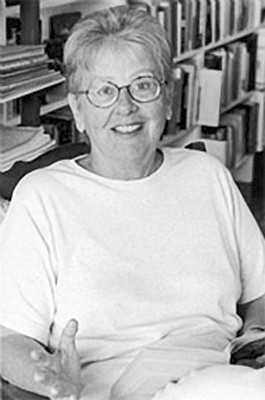04.29.09
Writers are among the most fragile creatures. A couple of weeks ago, I had lunch with a novelist friend who’s published numerous books. After a wide-ranging conversation, we returned to our favorite topic: our obscurity as writers.
We try to one-up each other with our post-publication misfortunes. That day my buddy thought he had the topper. He fixed his large, sad eyes on me. “My friends,” he said, “don’t even read my books. They may buy ’em, but they don’t read ’em.”
I didn’t blink. “Hey,” I said, with a measure of truth, “my friends don’t even buy my books.”
The poet and critic Randall Jarrell sang a similar song in a famous essay in the early ’50s. “When I was asked to talk about the Obscurity of the Modern Poet I was delighted, for I have suffered from this obscurity all my life,” he wrote. “But then I realized I was being asked to talk about . . . the difficulty, not the neglect, of contemporary poetry.”
It is this sense of neglect that makes the writer’s condition so comic or harrowing, depending on your point of view.
The trouble for me is that I started out as a star. Sort of. I won the San Francisco Public Library’s High School Poetry Award as a senior. It’s all been downhill since.
My early taste of fame came at a price. I woke the morning after the award ceremony to my mother screaming at me. She showed me my photo in the Chronicle with the winners from the other grades. Then she pointed to my poem, italicized in the body of the story.
I had no idea that the Chronicle was going to print a poem, let alone one I’d addressed to my mother.
Judgment
I don’t mind
that you spend your days
baking bourbon balls,
but when you slam
the refrigerator door,
barely missing the fingers
of my friend Wayne,
who’s thirsty and pours
himself a glass of milk,
you’ve gone too far.
The other day, I drove into the city to attend the 28th Annual Northern California Book Awards at the main library, a block from the library of my high school glory. I was particularly interested in the ceremony. I’d been a longtime board member of the National Book Critics Circle and regularly participated in their awards ceremony in New York. I’ve also been a finalist for a few regional awards and know the importance of these ceremonies to writers as, in most cases, their books are about to fade away. Unfortunately, it’s easy for nominated writers to delude themselves with the belief that their obscurity’s about to end.
It was great to see a large standing-room crowd, but the ceremony itself was a clunky affair. The nominees were invited, one category at a time, onto the stage while the host, NCBA board member Mark Singer, fumbled with names and publishers and was at a loss to say anything about a few of the nominated books.
His most grievous error was to read long emails, meant to be award acceptance speeches, from nominees who weren’t able to attend. The trouble was that these weren’t the writers who won the awards. It was bizarre when Singer presented Michael Pollan’s five-minute acceptance speech as if it were a literary gem, while the other finalists, and eventual winners, stood awkwardly through Singer’s oration.
It also seemed odd to have the winners read from their work right after their award had been announced, without proper introduction, like runners forced to make flat-footed starts.
I prefer the National Book Critics Circle model. Finalists participate in a reading the night before the ceremony and the winners get a well-crafted introduction from the chair of each committee.
In Minnesota, where I lived for years, finalists give a month of readings preceding the award ceremony at public libraries throughout Minneapolis and St. Paul. That creates a climate of excitement among the literati and the nominated writers get their due.
The one shining moment was when novelist and playwright Dorothy Bryant received the Fred Cody Lifetime Achievement Award. After a fine introduction by poet and novelist Mary Mackey, Bryant graciously accepted the award for all writers. She then read a chapter, “Writing the First Draft,” from her much admired method book, Writing the Novel, reminding us that the joy of creation is in these early imaginative markings, before editors and critics and outward concerns invade our psyches and make us confront obscurity.
Novelist Bart Schneider was the founding editor of ‘Hungry Mind Review’ and ‘Speakeasy Magazine.’ His latest novel is ‘The Man in the Blizzard.’ Lit Life is a biweekly feature. You can contact Bart at [ mailto:[email protected]
Museums and gallery notes.
Reviews of new book releases.
Reviews and previews of new plays, operas and symphony performances.
Reviews and previews of new dance performances and events.











